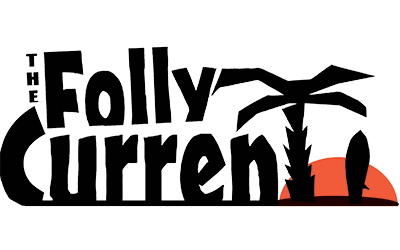City Council turns down Planning Department’s request to press pause on Folly Beach’s rapidly-growing short-term rental market
by Bill Davis | Current Staff Writer
Seeing that short-term rental homes outnumbered primary residences on Folly Beach in 2020, the city’s planning department last month unsuccessfully asked City Council to enact a six-month moratorium on issuing new rental licenses.
Staff wanted the break in the action “to provide adequate time for study and recommendation for appropriate changes” to a housing ordinance it passed only three years ago.
While the moratorium measure failed, there is little doubt that further discussion, and perhaps action is pending on the issue on Council.
City Administrator Aaron Pope informed Council and Mayor Tim Goodwin in a May letter that there are currently 1,019 “fully licensed and registered rentals,” referring to domiciles that rent out for less than 12-month periods, on Folly.
Conversely, there are only 815 units—be they houses or condos or the like—that are used as primary residences judging by the number that are taxed at 4-percent for owner-occupied rates, according to Katie Gerling, Folly’s planning director.
Considering that there are close to 2,600 parcels total on the island, the remaining 800 or so would likely be “second” homes, hit for 6-percent for county real estate property taxes.
To underscore, there are currently more short-term rental units than there are primary resident units or secondary units. And that has staff concerned about the future, and character, of Folly.
Gerling says that there is certainly some overlap between the categories, and Pope, her predecessor, writes that the situation is “ripe” for discussion and perhaps change.
With the defeat of the motion at last month’s Council meeting, the mayor has assembled a commission to investigate the issue and report back to him with recommendations that he will then bring to Council in the coming months.
That commission includes staff, members of Council and the Planning Commission, residents, and a local property manager dealing with rentals.
Gerling says her department and staff are still in the research and number-crunching stage, but added that so far Airbnb/VRBO ventures, the bane of planners in nearby Charleston, have not made a big impression on the situation.
Yet.
Folly has always jealously protected its funky flavor, making sure it doesn’t become a haven reserved solely for deep-pocketed out-of-town owners and visitors, as many other oceanfront communities have become.
Pope points out that one of the main goals of the last housing ordinance was to address issues of affordability. If the “highest and best use” for property on Folly becomes reserved solely for renters, then he warns Council that workers will have affordability issues with living out there, tearing at the fabric of Folly.
Pope lays out for Council that rentals have jumped from 438 units in 2011, the first year data was available, to 779 in 2017. In 2020, that number had grown by over 20 percent, a trend the city administrator finds troubling.
Goodwin points out that whatever does happen on Council, the current state of rental business would likely be unchanged.
“You’d have to grandfather many of these things,” he says, adding that only people that would have been directly affected by the moratorium would be investors on the precipice of buying a property for rental use.
For one, the mayor is tired of fielding calls from homeowners complaining about the “hollering and screaming and the foul language” emanating from short-term rentals.
One Folly primary resident, who asked to remain anonymous, says the biggest problem he faces living next to a short-term rental house, is dogs barking. “They are from out of town, with their owners, and they’re in new and uncomfortable surroundings, so they bark at everything,” he says.
City Councilman Adam Barker is serving on the mayor’s commission, but also voted against the moratorium. “It’s not because I am against studying the issue, I’m just not for using a moratorium at this time,” he says.
Barker says that, judging by the trickle of feedback he received from a usually hyper-involved populace, he says he didn’t think it had been out in the public long enough. “It felt too ‘last minute.’”
Barker sees other more perplexing issues regarding any kind of moratorium, as they relate to property values. He sees a situation where a house that is grandfathered in with the ability to be rented out would likely have a higher selling point, and conversely a home stripped of that ability could see its future sale price dinged hard.
The mayor thinks regardless of what comes back from his commission, he will have the last laugh on those who vote to push Folly past its “tipping point.”
“They got to remember, four-percenters are all voters, but six-percenters can’t vote for you.”














